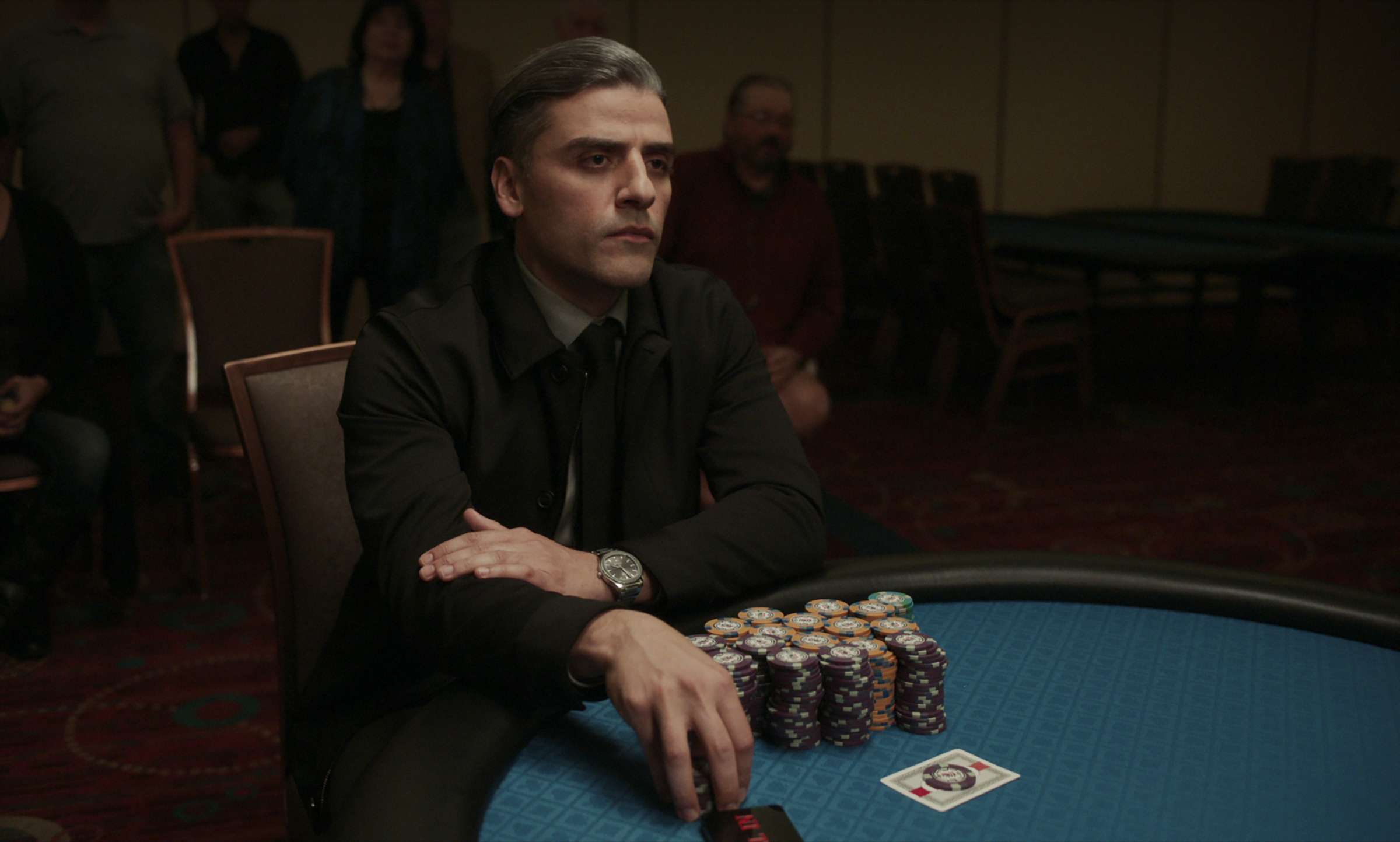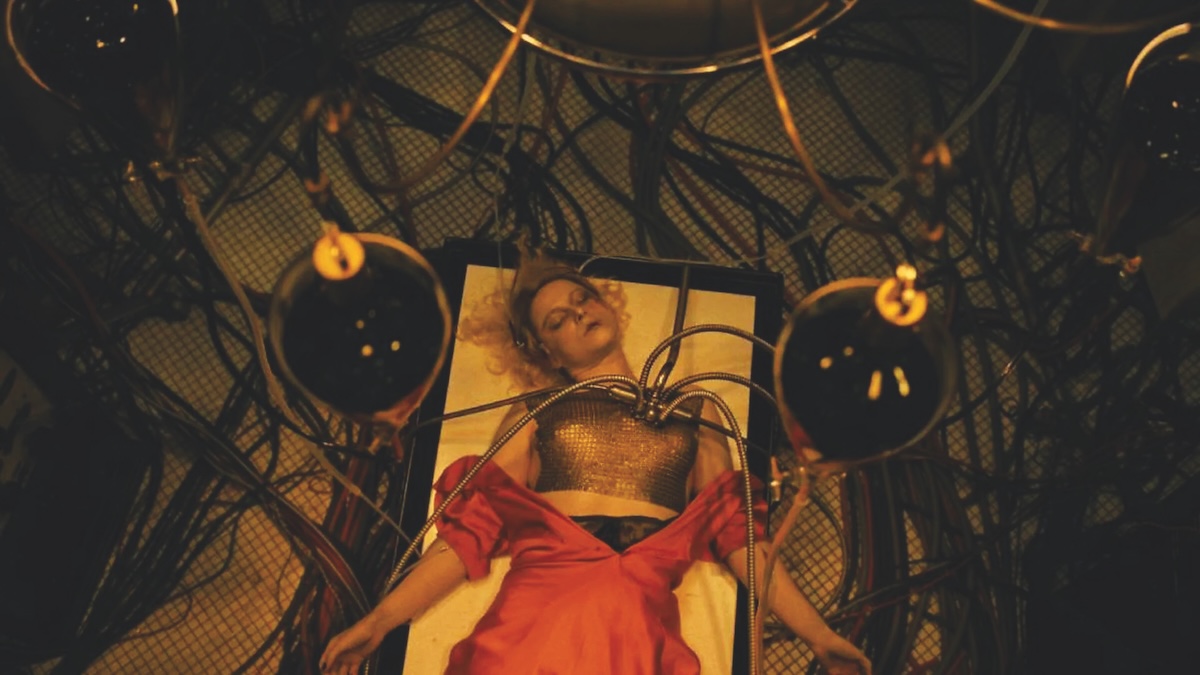Cold, hard and brittle, Paul Schrader’s The Card Counter may be the ideal neo-noir to evoke the loneliness and desolation of the Coronavirus pandemic era. Even though the virus itself is never mentioned in dialogue, Schrader dissects a situation with surgical care in the story of four people, picking up the broken pieces of 21st-century American life as everything else fades into obscurity around them.
The professional gambler and morally disabled ex-warrior who calls himself William Tell (Oscar Isaac, doing a very slow burn) lives the life of a sort of penitent monk in beat-out motel rooms and forlorn casinos. Without spoiling too much of the story, let’s just say that Tell is on the road to some form of redemption after taking part in one of contemporary history’s most heinous war crimes. To atone for that, he wanders from city to city playing blackjack and Texas Hold ’Em with the aid of the card-counting skill he acquired in prison, betting small and winning just enough to keep going, then moving on. The question of exactly how playing poker might help soothe someone’s long-term guilt issues is never raised. Tell is on a quest, and that’s the only thing that matters.
We’ve never seen an Oscar Isaac character looking so distressed and deeply wounded. The busy role-player (Ex Machina, A Most Violent Year, various Star Wars installments) materializes on the casino floor like a business-casual vampire in a cemetery of slot machines—replete with pallid face, black suit, stiffly deliberate movements and grim expression. Isaac looks 20 years older than he did in Dune, and centuries more worn out. Tell has been to Iraqi battlefields, the Bruegel-esque torture chambers of Abu Ghraib and a soul-killing stateside federal prison. Nothing distracts him from his ritualistic efforts to set things straight.
We can catch little hints of haunted protagonists from other Schrader screenplays—Taxi Driver’s Travis Bickle, the lovelorn clergyman in First Reformed, the medical tech in Bring Out the Dead, the mutilated Namvet hero of Rolling Thunder—in Tell’s distracted wanderings. He carries “the weight,” and his moral reckoning demands its audience of fellow sufferers.
An affectless young man named Cirk (Tye Sheridan), attracted by Tell’s poker tournament reputation, attaches himself to the older man as Tell’s gofer. Cirk possesses vitrually the identical stunted emotional state as Tell, and we begin to anticipate the violence even before it develops. Tiffany Haddish, as La Linda—the gambling syndicate’s talent scout—supplies 100% of the sly sensuality that creeps into the margins of the action as Tell paces the eerily quiet, generally deserted casinos.
La Linda, Cirk, Tell and Mr. U.S.A., the obnoxious flag-waving card hustler (Alexander Babara), are joined on the get-rich-quick big-time card-playing circuit by an even stranger individual. Major John Gordo (Schrader stock company player Willem Dafoe)—who is, aside from Tell, the most reprehensible character in this tense screenplay—is a right-wing conspiracy peddler and military “enhanced interrogation” expert who also operates his own rent-a-spook security agency. Gordo’s resemblance to former Trump administration national security advisor John Bolton—the bushy facial hair, the absent-minded-professor scruffiness—is probably no coincidence. We keep waiting for Tell’s carefully composed demeanor to crack and an avalanche of mayhem to come down. But writer-director Schrader has a built-in aversion to random violence. He likes to make us patiently stand by until there is no other option.
The night-time world these people inhabit would be frightening even without their history of crime. The gaming halls and guest rooms all have a dull, dirty glow, even when fully neon-lit, that brings to mind an endless procession of broke-down palaces staffed by the modern equivalent of medieval demons. All the demons come from William Tell’s inner life. There’s not enough prize money in the whole world to make him forget what he once did. Cue up The Card Counter and let the punishment begin. Hit me again, dealer.







